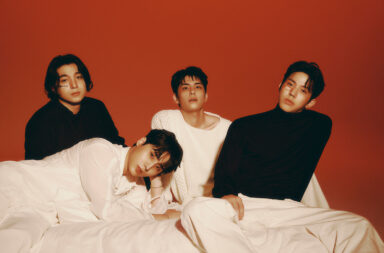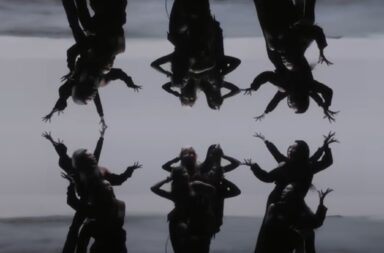 Our Mid-Year Review coverage continues with the albums category. Here, Karen, Qian, and Gaya discuss the EPs and LPs from the past six months that stood out to them, with both idols and non-idols finding representation in their lists.
Our Mid-Year Review coverage continues with the albums category. Here, Karen, Qian, and Gaya discuss the EPs and LPs from the past six months that stood out to them, with both idols and non-idols finding representation in their lists.
| Karen | Qian | Gaya | |
| Album | |||
| 1 | Day6 Sunrise |
IU Palette |
Hyukoh 23 |
| 2 | Jung Joon-young The First Person |
Day6 Sunrise |
Day6 Sunrise |
| 3 | Monsta X The Clan 2.5 The Final Chapter |
Hyukoh 23 |
AkMu Winter |
| Mini | |||
| 1 | Giriboy 5 Songs for Initiation |
G-Dragon Kwon Ji Yong |
G-Dragon Kwon Ji Yong |
| 2 | Suran Walkin’ |
Zion.T OO |
Suran Walkin’ |
| 3 | Roy Kim Blooming Season |
Dumbfoundead Foreigner |
Baek A-yeon Bittersweet |
Qian: Why isn’t Zion.T on your lists at all? I found OO to be some of Zion.T’s most stylistically consistent work. His songs remain conversationally smooth; “The Bad Guys” has been my go-to chill track for the year to kick back and unwind. The instrumentals on all of these songs are just gorgeous.
Most of all he shows self-awareness and his dry personality on his lyrics; like on “Complex”, where he grouses on people who like to call him as they pass Yanghwa Bridge, for the simple reason that they like the song. Staying true to the theme, he mumbles about his complex about his skinny and tall frame (casually noting, however, that he has none about his ‘thing’ — it doesn’t need to get any bigger), and wonders if being a handsome idol — where he imagines he could simply strip if the music quality is lacking — would have been better. G-Dragon shuts that idea down quickly, pointing out how lucky Zion.T’s remembered for his music and not his face. It’s a standout track for the both of them.
Karen: I agree with you wholeheartedly about OO as keeping with Zion.T’s usual style — laid-back but also quirky and charming in his lyrics. I initially included his album as part of my Top 3 because “The Song” and “The Bad Guys” caught my attention. He puts a different twist to the Korean music scene and I love everything he makes.
However, when I listened to the album, I wanted it to be a more rounded experience, but the songs were far too consistent stylistically. I know Zion.T is capable of diversifying his music without losing his individuality, from tracks like “No Make Up”, “Two Melodies”, “Just” and even “See Through” — tracks that evoke a variety of emotions and mods. I was hoping for something more diversified than the typical Zion.T, especially since he is experimental with his music. OO was not able to give me that, though of course I admit his virtuosity even with OO in bringing out his own flavour. OO just fell a tad bit short of my expectations and out of my Top 3 as a result. I slotted in Giriboy‘s 5 Songs for Initiation in place of OO.
On the other hand, I see Gaya is with me on Suran‘s Walkin’. It’s quite a piece of work. Suran’s unique voice nails down her style pretty concretely and she delivers as expected. Her title track “1+1=0” with Dean was straight up a hit, and she balanced the groovy, upbeat track with other more melancholic ones. Even though it was a short mini album, it managed to evoke a range of emotions that made the listening experience wholesome.
Gaya: OO is right up my alley, I absolutely adore its sound — though I do agree with Karen that it was overly consistent. My main reason for passing it over, however, is more due to anticipation than disappointment. Like an entree, OO is just the beginning of the Zion.T banquet at The Black Label, and the EP does its job in whetting my appetite for what else the crooner has in store. I understand that I am, to an extent, downplaying OO‘s own stature and accomplishment, but I also believe that OO pretty much does the same to itself with its implicit promise for the future.
Suran has been active for a couple of years now — I gushed over her in at least one of our past Best Indie panels — but Walkin’ represents her true debut, of sorts. A work where she is the main focus, not a feature or collaborator. There is a very recognisable list of names in the album credits (Dean, Swings, Changmo, Suga), but no-one can take our attention away from a seasoned spotlight-stealer like Suran.
The charm of Walkin’ lies in its honesty and optimism in the face of personal difficulties, be it moving on from an ex (“Wine”), or the exhaustive futility of work life (“1+1=0”). There’s struggle, but there’s also resolve and hope, a reminder of what is truly needed to survive in this complicated world of ours. “Walking” sounds like it could be a beautiful outro following an album of tragedies, a way to resolve the narrative and end things on a positive note; starting the album with such a track, which in itself begins with the word “goodbye”, makes it clear that this message of hope is front and centre in this album, rather than as an afterthought.
If Suran’s Walkin’ is the after, then Baek A-yeon‘s Bittersweet could be considered the before; the thematic link between the two EPs is near unbreakable in my mind, and may explain why both are on my list. Bittersweet juxtaposes the sweet femininity of Baek A-yeon’s vocals with discontent at the state of romantic affairs, like a boyfriend sending mixed signals (“Bittersweet”), or apparently being passed over for another romantic prospect (“Jealousy”). This contrast is no starker than in the acid-sweet “Screw You”, wherein A-yeon angelically tells her former beau where to go.
Considering the decade-plus age difference between Suran and A-yeon, this difference in approach is to be expected. While Suran’s mature, positive outlook is what ultimately what we need, A-yeon offers us a moment to indulge in our immaturity, before we have to face the realities of the world like an adult again.
Qian and I both have G-Dragon at the top of our lists; Karen, was there a reason why you decided to pass on Kwon Ji Yong?
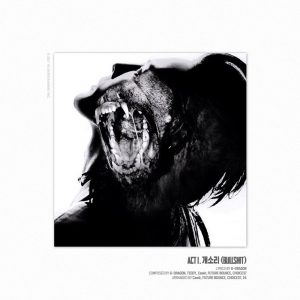 Karen: I’ve never been a huge fan of GD because the music style he deals with and the content of his music are far from affecting for myself. I do acknowledge his skill in constantly producing music that is up to standard despite my own personal tastes. When Kwon Ji Yong was released, I was first intrigued by the elaborate imagery of rebirth and theme of introspection — I had certain expectations of seeing a new GD. But it seems to me that the album as a whole failed to remake an image of GD for me.
Karen: I’ve never been a huge fan of GD because the music style he deals with and the content of his music are far from affecting for myself. I do acknowledge his skill in constantly producing music that is up to standard despite my own personal tastes. When Kwon Ji Yong was released, I was first intrigued by the elaborate imagery of rebirth and theme of introspection — I had certain expectations of seeing a new GD. But it seems to me that the album as a whole failed to remake an image of GD for me.
In the first three songs at least — and I know I might be stepping on dangerous territories with my comments — were not spectacular. If introspection and commentary of his public image as an idol was intended, I felt these songs fell through in its attempt. More so than exposing his true self, I felt that he tried to perform his introspection in his lyrics by mentioning a sacrificed self and cursing it off at the world (of sorts).
I have considered that perhaps it is a stroke of a genius if his intended effect was to show the same GD, displaying how the mask can never truly be taken off. Yet, I am still fairly ambivalent as to whether he was brilliant enough to construct something like that. Within the entire album, only “Untitled, 2014” managed to really expose a side of GD that is relatively unfamiliar to the public — it is the only song that works with the notions of introspection in my eyes. More than speaking of a lover, it was a song that could be read as directed towards his younger, unmasked self. Being able to see the song in this way added a layer of depth to it. As opposed to the rest of the songs in the album that incorporated criticism in a touch-and-go manner, “Untitled, 2014” is the one song that redeemed this album. Hence, I passed on Kwon Ji Yong in my Top 3.
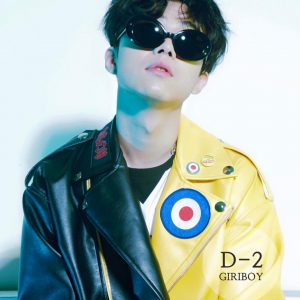
On my end, I felt that Giriboy’s 5 Songs for Initiation was a novel twist. Knowing that Giriboy is a producer at the forefront of beat making, I was first surprised then disappointed that the album was dominated by remixes made by other artists of his songs. I was expecting more of his own creations, but I soon came to understand the significance of constructing his tracklist in such a manner. It was an attempt to be less self-absorbed in a certain sense, and to see his own songs in a new light — even if it meant deviating from the initial atmosphere he set out with.
I don’t think its an easy feat for a self-made producer and artist to relinquish creative control in such a manner and I saw the album in a new light after realising this. Of course, I still love how brutally unfiltered he is with themes like loneliness (“Highway”) and unfulfilled sexual lust (“Intimacy”) from a personal position of estrangement. He is trying to push the boundaries of what is acceptable to talk about in the mainstream music platforms and that makes his works consistently top of my lists.
On the other hand, Roy Kim‘s Blooming Season took me by surprise because he brought an element of surreal without trying too hard to be fanciful. The manner in which his songs bring comfort with its simplicity always wins me over. The splendid thing about Blooming Season was how its simplicity did not come at a sacrifice of its aestheticism of poeticism. I think the appeal of album was the depth of emotion it could convey without being extravagant, be it in terms of talking about the poignancy of melancholy and struggles of heartbreak (“Suddenly”) or communicating difference as part of life (“Egoist”).
Nonetheless, I am interested to hear why Kwon Ji Yong was on the top of both your lists. And for Qian, why Dumbfoundead‘s Foreigner?
Qian: I’ve made myself pretty clear in my review why I thought Kwon Ji Yong was a great sendoff for GD, so I won’t go in depth, but I will admit the album is more enjoyable to people who keep up with G-Dragon’s personal life and news. The tidbits of references he scatters all over the tracks — and the concept art, come to think of it; the picture of him fully bandaged is a clearly a nod to The Face of Another (which he first alludes to when his private Instagram got hacked) — elevate the already personal, unfiltered album to another level, from his art he hangs, the wines he collect and the relationships he share.
Dumbfoundead, as a Korean-American rapper trying to break it into the South Korean music scene, has a bit of an uphill battle trying to appease both markets at once. But while Foreigner doesn’t quite succeed in that regard, the end result is unexpectedly quite enjoyable. His perspectives as a foreigner on the various intricacies of Korean culture are insightful and unique.
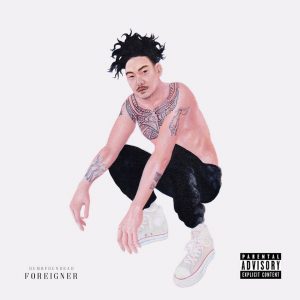
The numerous pop culture references flying here and there are sometimes hit-and-miss — I have mixed feelings about that one line about her wanting a wedding dress, but he ain’t Taeyang (“Water”) — but altogether quite masterful, especially highlighted when employing it in describing his superiority and sexual prowess (“Upgrade”). Having Jessi (whom he dated) provide guest vocals and spoken word intermittently throughout definitely helps add a touch of sincerity to the whole EP, culminating in one of the best hooks I’ve heard so far this year on “Send Me to War”.
Ultimately, what ties all 3 EPs together is the different perspectives they share with their listeners, which as Lady Gaga once put it, is what separates them from being ‘singing advertisements’ and artists.
Gaya: I actually liked Kwon Ji Yong precisely because I’m not a fan. I don’t follow his personal life that closely, and his solo music has been largely hit-and-miss. But this EP… I absolutely loved every track, with “Super Star” and “Divina Commedia” being personal highlights. “Bullshit” was going to be the write off, but GD’s dedication to the dog metaphor won me over. And as childish as “Middle Fingers Up” seems, the anger that birthed it isn’t easily ignored.
People talk about contrivance, and I totally see it with things like the USB with no actual music on it, but as put off as I am by a “bloody” thumb drive, I can’t help but appreciate the sheer amount of thought put into every single aspect of this release. This album works on so many levels: a reflective study of GD’s relationship with fame, a fitting farewell to fans who have stuck by his side before his enlistment, an antidote to the meaningless overabundance of MADE… There was no way it was not going to the top of my list.
Speaking of list toppers, I cannot wait to talk about Day6. This is the group that has made all of our lists. Like GD, this was a band I had not paid much attention to before now. I gave Sunrise a listen since it was on your lists, and was simply blown away. Sunrise is a fitting name for a piece of work so warm and filled with energy, the smile did not leave my face even after the last strains of “Congratulations” faded away. I adore the vocal interplay throughout the album, and have resolved to check out more of their music.
Why did Sunrise top your list, Karen? And why did Day6 top Hyukoh on your list, Qian? I ended up with the opposite result because Hyukoh’s boldness in 23 contrasted so wonderfully with the unassuming nature of 22 and, to a lesser extent, 20, while still maintaining the band’s signature sound. Where Oh Hyuk‘s soft vocals juxtapose with the energy of the music in a lot of 20, in 23 he really kicks things up a notch, and I absolutely love this change.
Karen: Sunrise is the most comprehensive album I have seen thus far this year. Day6 is a band who receives much less love than they deserve because they don’t appear very frequently on variety shows. Gaya, I’m beyond glad you’re going to check out more of their music!
This first full-length album shows the sheer amount of hard work they channel into their music. Rather than saying that I’m impressed by Day6’s consistency in this project, I was heartened by it. The album spotlights not only their ability to compose but also to constantly redefine the music they are capable of producing.
Rather than being confined to a single style, I see diversity as the album moves from the rock ballads of “I Smile” and “Goodbye Winter” to upbeat tunes like “Say Wow” and “Dance Dance”. I also fell in love with “Man in a Movie” for its charming lyrics and groovy melody uncharacteristic of mainstream South Korean music.
Jung Joon-young’s The First Person captured with its focus on softer melancholic melodies as opposed to his harder rock tracks with his band Drug Restaurant, walking the listener through a deeply personal journey of yearning. However, Jung Joon-young’s album pales in comparison to Day6’s Sunrise which brought a pop rock sound that’s impossible to replicate.
I noticed nobody had idol groups in their album choices except for me. I didn’t expect myself to include one either, considering I’m not huge on idol groups, but Monsta X’s first album finally allowed the group’s personality to shine through. As compared to their previous releases, this album allowed for musicality without looking too fixated on pulling off a concept. And I was surprised by “5:14 (Last Page)” which toon on a surprisingly personal and softer tone.
Qian: Karen, NCT 127‘s Cherry Bomb very nearly made the cut, but while I do appreciate the experimental approach to their music, the overall album still lacked cohesiveness, and didn’t do much to let everyone have their moment beyond the main vocalists, Taeyong and Mark. Even as a performance group, having more than 3 people with similar vocal colours share the same line “I’m the biggest hit” definitely wasn’t the best of ideas.
On to Day6 and Hyukoh: both Sunrise and 23 were outstanding, and whilst Hyukoh laments their growing pains with pomp and grandeur on tracks like “Leather Jacket” and “万里”, Day6 goes above and beyond celebrating the young love while they can on tracks like “Man in a Movie” and “I Wait”. While the instrumentals are definitely simpler compared to Hyukoh, one can argue it only adds to Sunrise‘s overall theme of youth.
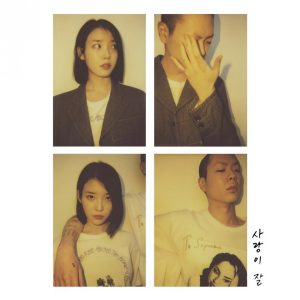 As for why I put it above 23, perhaps it’s because of their great vocal chemistry displayed that Day6 manages to edge out Hyukoh by the smallest of margins. The voice, after all, is also an instrument, and Day6 takes advantage of their 4 capable vocalists to elevate Sunrise to another level. Also, though “Tokyo Inn” came close, there isn’t a track on 23 that could top my personal favourite “Mer” from 22, so Day6 barely — just barely — takes second place.
As for why I put it above 23, perhaps it’s because of their great vocal chemistry displayed that Day6 manages to edge out Hyukoh by the smallest of margins. The voice, after all, is also an instrument, and Day6 takes advantage of their 4 capable vocalists to elevate Sunrise to another level. Also, though “Tokyo Inn” came close, there isn’t a track on 23 that could top my personal favourite “Mer” from 22, so Day6 barely — just barely — takes second place.
Finally, I was pleasantly surprised by IU‘s versatility of styles on Palette. You have the obligatory ballads like “Ending Scene”, you have something jazzy on “dlwlrma”, you even have disco out of the blue with “Jam Jam”. And yet throughout all of these different styles, IU takes great care to ensure her unique voice remains the star of the track, especially obvious on “Love Alone”, where she croons over the sparse notes of a lone guitar. It is this consistency and versatility throughout that places IU’s Palette first on my list.
Readers, what were your favourite albums so far this year? What would your lists for top full and mini album look like? Share your thoughts in the comments below!
(YouTube[1][2][3][4][5][6][7]. Images via: Studio J, The Black Label, YG Entertainment, Just Music Entertainment, Born Citizen, Loen Entertainment)
